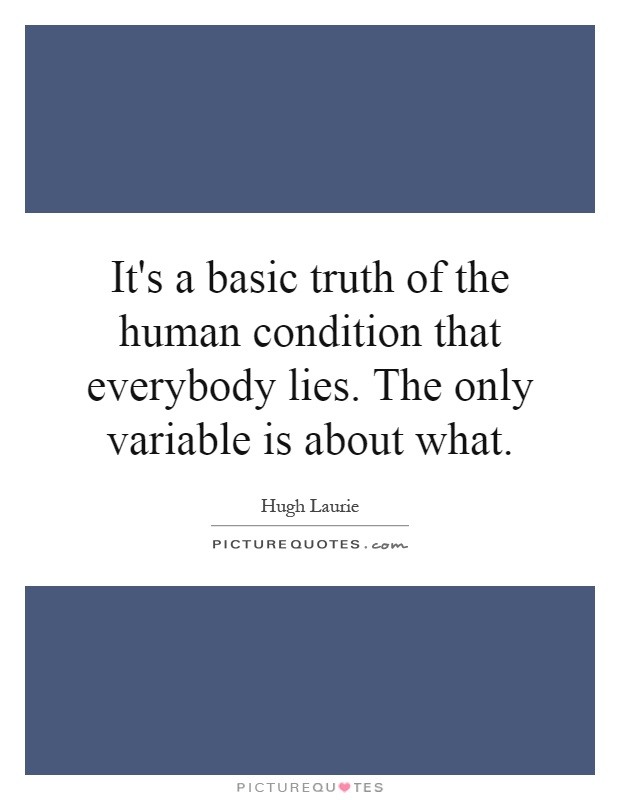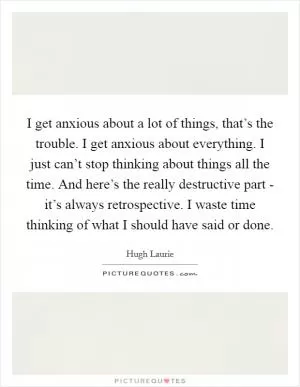It's a basic truth of the human condition that everybody lies. The only variable is about what

It's a basic truth of the human condition that everybody lies. The only variable is about what
Hugh Laurie, best known for his role as the cantankerous yet brilliant Dr. Gregory House on the hit television show "House," is no stranger to the concept of lying. In fact, his character's catchphrase, "Everybody lies," has become synonymous with the show itself. But what does this statement really mean in the context of the human condition and Laurie's own life and career?At its core, the idea that everybody lies speaks to the inherent complexity of human nature. We all have our own motivations, fears, and desires, and sometimes the truth can be too painful or inconvenient to face. This is something that Laurie's character, Dr. House, understands all too well. As a brilliant diagnostician who often has to navigate the murky waters of his patients' lies and half-truths, House knows that people are not always forthcoming with the truth, even when their lives are on the line.
But what about Laurie himself? As an actor, he has made a career out of embodying characters who are often flawed and morally ambiguous. From his early comedic roles in shows like "Blackadder" to his more recent dramatic turns in projects like "The Night Manager," Laurie has always been drawn to characters who are not afraid to bend the truth in order to get what they want. This willingness to explore the darker side of human nature has made him a versatile and compelling actor, capable of portraying a wide range of emotions and motivations.
In his personal life, Laurie has also been open about his struggles with depression and self-doubt. In a 2013 interview with The Telegraph, he admitted that he had often felt like a fraud and that he had to constantly battle his own inner demons in order to succeed. This vulnerability and honesty about his own struggles only serve to make Laurie a more relatable and empathetic figure, both on and off screen.












 Friendship Quotes
Friendship Quotes Love Quotes
Love Quotes Life Quotes
Life Quotes Funny Quotes
Funny Quotes Motivational Quotes
Motivational Quotes Inspirational Quotes
Inspirational Quotes